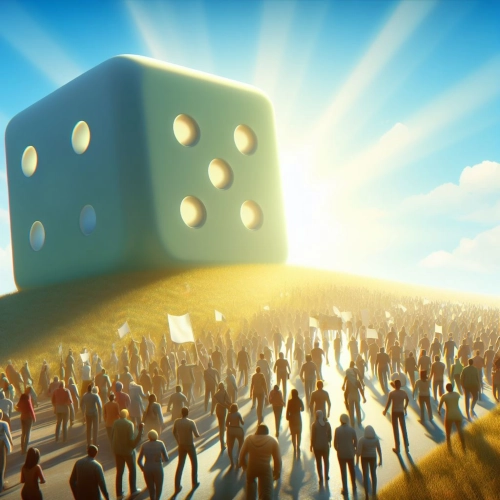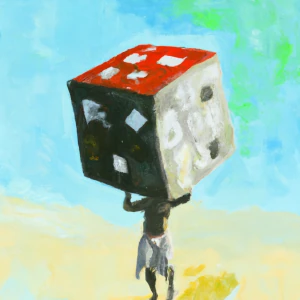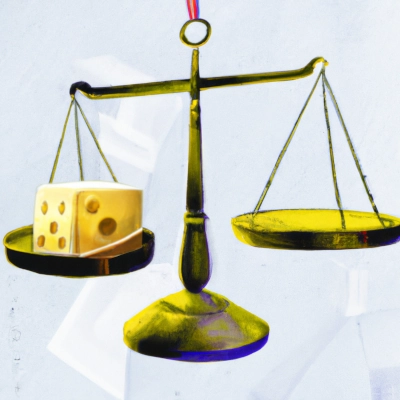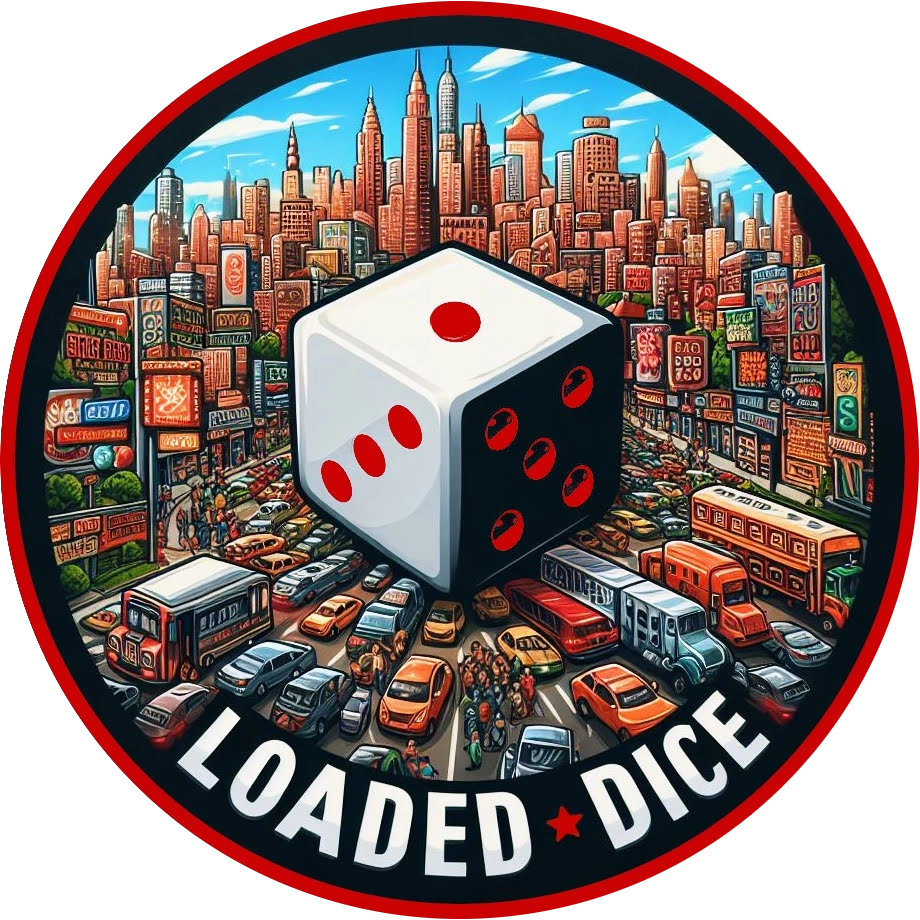Yahtzee for Peace: The World Yahtzee Revolution
Playing Yahtzee can help bring people together, breaking down physical and emotional borders and promoting fairness, equality and justice. The game is inclusive, encourages teamwork and collaboration, builds bridges between different cultures, teaches empathy and can challenge biases and preconceptions. By playing Yahtzee with a group of diverse individuals, players can foster mutual understanding, respect and appreciation, leading to a more just and equitable world. Yahtzee has the potential to change the world and all it takes is for players to start rolling the dice.

Too many of our popular tabletop games – like Risk and Battleship - are rooted in themes of war and domination. Even beloved classics like Monopoly, chess, and playing cards perpetuate hierarchical power structures based on systemic violence.
Yahtzee, in contrast, is a game of peace, based in pure logic and mathematics. Through Yahtzee, we can end the cycle of martial indoctrination in gaming. Economic violence is also erased – Yahtzee is loved by all socio-economic classes, from the poshest aristocracy, to the common person. It’s a game for all people, bridging class divides like few other pastimes.
Dismantling unequal power structures while racking up high scores – what more could a pacifist gamer want? Yahtzee’s democratic nature encourages players from all walks of life to come together around the table, fostering connections and shared experiences that transcend social and economic boundaries. As we continue to challenge the dominance of war-themed games in our leisure activities, Yahtzee serves as a symbol of unity and intellectual camaraderie, offering a path towards a more peaceful and equitable gaming culture. The power to redraw country borders is no game - but five dice can indeed change the world.
Change the World with Yahtzee

Playing Yahtzee can help bring people together, regardless of race, ethnicity, gender, or any other differences. The game requires players to communicate and collaborate with each other, creating a sense of community and friendship. Through playing Yahtzee, people can develop a deeper understanding and appreciation for each other, which can lead to more positive and respectful relationships and improved mental health generally.
Be the change you want to see in the world by picking up a handful of dice with joy in your heart. Yahtzee players can use the game to metaphorically redraw borders and create a more just and equitable world. Here are just some of the ways you can use Yahtzee to break down barriers in human societies:
- Promote inclusivity: Yahtzee is a game that can be played by people of all ages, backgrounds, and cultures. By playing with people who may have different experiences and perspectives, Yahtzee can help break down physical and emotional borders and promote inclusivity.
- Encourage teamwork and collaboration: Yahtzee is a game that requires teamwork and collaboration between players. By working together to achieve common goals, Yahtzee can help players to eliminate individualistic attitudes and promote a more cooperative mindset.
- Build bridges: Yahtzee is a game that can be played by people from different countries and cultures. By playing with people from other parts of the world, Yahtzee can help to penetrate cultural borders and build bridges between different communities.
- Teach empathy: Yahtzee is a game that requires players to take turns, share resources, and understand each other's needs. By learning to understand and empathize with others during the game, Yahtzee can help players to develop a more compassionate and empathetic mindset.
- Break down class barriers: Yahtzee is a game that can be played by people from different social and economic classes. By playing with people who may have different experiences and circumstances, Yahtzee can help to overcome class barriers and promote greater understanding and equality.
- Advocate for fairness: Yahtzee is a game that requires players to follow rules and make decisions based on fairness. By playing Yahtzee, players can develop an understanding of what fairness means and how it can be applied to other aspects of life.
- Foster community: Yahtzee is a game that can be played with friends and family, or with strangers in a community setting. By playing Yahtzee, players can build relationships, foster community, and erode the emotional and physical borders that can divide people.

Redraw Borders - or Just Smash Them

Whether you prefer to play Yahtzee with friends and family, or use the game to build bridges with people from other communities, the game has the power to redraw borders – by eliminating barriers and bringing people together. By playing Yahtzee, individuals can challenge their own biases, prejudices, and preconceptions. Through the act of rolling dice, and making decisions based on the outcome, Yahtzee can help players let go of their beliefs, and embrace new perspectives.
Yahtzee also has the power to break through physical and emotional barriers, creating a more just and equitable world in the process. By playing Yahtzee with a group of diverse individuals, players can foster mutual understanding, respect, and appreciation. Coming together in harmony to play Yahtzee, players work towards a world where all individuals are valued, respected, and treated equally. The Yahtzee lifestyle is one of peace and tranquility.
Yahtzee has the potential to change the world, and all it takes is for players to start rolling the dice. So, the next time you bust out your Yahtzee set, remember that you are not playing a game, but you are helping to redefine and reshape boundaries in order to promote fairness, equality, and justice in the world. Whether you are breaking down physical borders or emotional barriers, Yahtzee can be a tool for positive change. By playing the game with a mind towards inclusiveness and collaboration, you can make a real impact on the world around you. So, embrace the spirit of the World Yahtzee Revolution and use the game as a means of creating a better, more equitable world for all. With Yahtzee, all things are possible.


